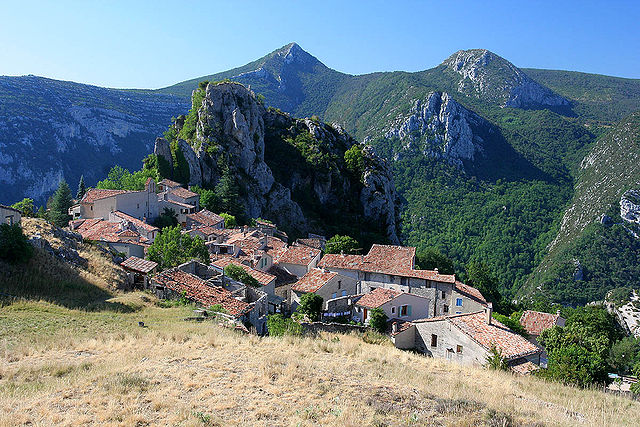How common or uncommon are the words village and hamlet in US native parlance? In the small discussion following this comment, one user said that the word village is not a word we use here, but another one said There are villages in the US! I live in one, and it is inside a town.. There is a Wikipedia article Village (United States) that discusses some of the formal issues.
I've always taken village as a translation of the Dutch word dorp, a concentration of human settlement ranging from a few dozen people to a few thousand, in a rural area, not connected to any town or city. Here is a nice example with the village of Rougon in the French Alps (photo from Wikimedia Commons):

What would such a settlement be called in the US? Do such settlements even exist in North America? Can a place with between 10 and 1000 inhabitants be called a (small) town rather than a village? From this Wikipedia article comes the quote Eighty-nine percent of the cities in Nebraska have fewer than 3,000 people.. Are those really cities?
P.S. I'm pretty sure the word village in the UK and Ireland matches the meaning that I'm thinking of pretty much.
